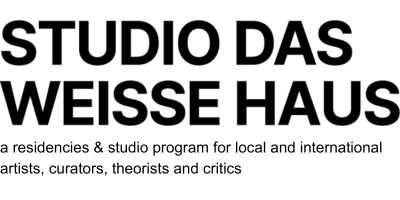Weekly Conversations... with Christiana Perschon

This week we are talking to studio artist Christiana Perschon about her short film “das bin nicht ich, das ist ein bild von mir” presented at the Diagonale’18 in Graz. Her piece reflects the encounter of two artists who work against the copy – for them not the image is important, but rather, making visible the process that led to the photo.
Is this the first time, that one of your short films will be shown at the Diagonale?
„Das bin nicht ich, das ist ein bild von mir“, is my third film at the Diagonale. In the past two years I have been represented with the movies “Ghost Copy” and “Double 8”. “Ghost Copy” is an archive movie that deals with Günter Brus’ performance “Wiener Spaziergang” taking place in 1965, and shows historical amateur footage. Whereas “Double 8” is a collaboration with the avant-garde filmmaker Linda Christanell. The camera work and imagery develops itself: two cameras, two artists from different generations simultaneously become filmmakers and protagonists and are presented on a split screen. This encounter has been the inspiration for my film project “Vertrauen ins Imaginäre”, an involvement of five visual artists who have been part of Vienna’s art scene in the 1970s and were engaged in the feminist progress. Including the voices and previous works of the protagonists, the movie presents an exit from the male-dominated perception of women and transforms the artists into protagonists of an artistic feminism. Karin Mack is one of those artists and the movie was created in collaboration with her.
Why is Karin Mack such an important representative of feminist art for you?
This clip only exists because of the photo series “Zerstörung einer Illusion” by Karin Mack. The six part black and white series inspired me and immediately triggered my need to work with film. In 1977 “Zerstörung einer Illusion” has been an act of self-liberation from the role of women in our patriarchal society. Karin Mack stages the self-portrait of a stereotypical housewife with a pointed irony and then destroys it to complete abstraction with gadgets from her kitchen cabinet – including skewers, hair needles and nails. Now, forty years later, it’s important for me to show not only show the series but also how it was created. The artist worked in the darkroom as a
room of self-determination or to put it in Virgina Woolf’s words as “a room of one’s own”. Subsequently, the film “das bin nicht ich, das ist ein bild von mir“ wants to carry on the feminist fight against the male dominated world. Role models like Karin Mack who have worked with political statements like the second wave feminist phrase ”Das Private ist politisch” have influenced my self-understanding as an artist.
The creating process plays an important role in this film. Has the process always been more important for you than the final product?
At the beginning of a movie there is always the communication about experiences and the idea of interdependency between my protagonists and myself for the duration of the collaboration. It is a process that requires a lot of trust and leeway. I’m interested in reflecting this through my camera work, as well as the editing. The idea was to put the photographs into motion and to re-animate them. In order to create an object out of a photograph you need to add the dimensions of space, time and continuity. I have used the parts of the series but also elements of the developing process like negatives and positives, daylight and red light. I wanted to play with perception and to illuminate photographical methods through analog lighting techniques. Rotating movements and shadows create an illusionary perception between imagination and reality. Illusion is not always a contradiction to reality.
Will this film be presented at other festivals this year?
I hope so. The film is distributed by Light Cone in Paris and the Canadian Filmmakers Distribution Centre. The premiere will be at the Diagonale in Graz as part of the program ”Innovative Cinema”.
Interviewer for studio das weisse haus: Florian Appelt
Translation: Florian Appelt, Judith Herunter
